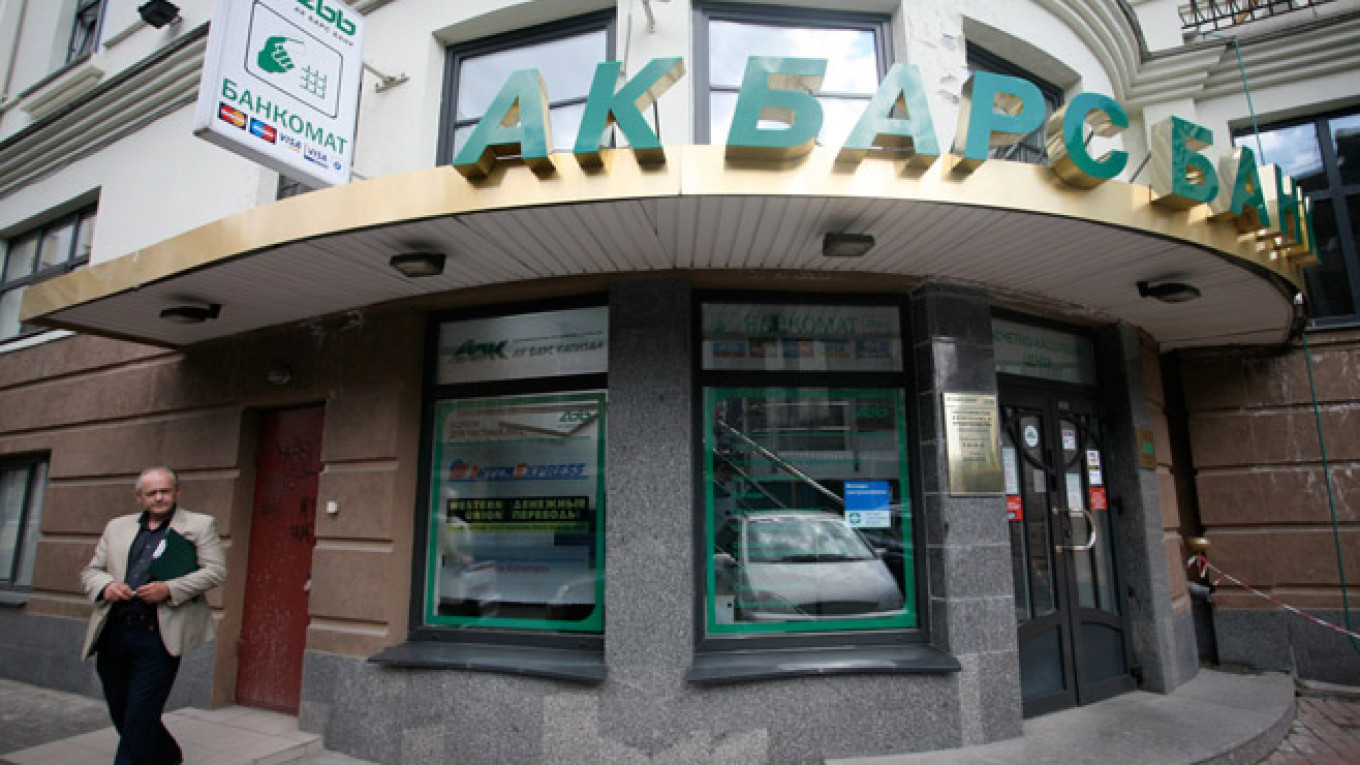SYDNEY/MOSCOW — Russian banks are developing their expertise in Islamic finance to help broaden funding sources for local firms, though Western sanctions over the Ukraine crisis and the absence of a regulatory framework could hinder those efforts.
Russia's Islamic banking sector is still in its infancy. But an estimated 20 million Muslims living in the country are a potential source of money, as are cash-rich Islamic funds abroad.
Islamic finance has become a mainstream funding source for some other governments and companies over the past several years, with even non-Muslim nations such as Britain and South Africa issuing debut Islamic bonds (known in Arabic as sukuk) last year.
However, the European Union and the United States are seeking to cut overseas funding to Russian firms over Moscow's support for rebels in eastern Ukraine. Banks in the Middle East and southeast Asia, the major markets for sharia-compliant debt, are wary of becoming tangled in the sanctions.
So some Russian lenders are trying to build their own in-house knowledge of Islamic finance.
State development bank Vnesheconombank (VEB), which has been targeted by the sanctions, is seeking help from Middle East firms to develop its Islamic finance expertise, a spokesperson said, without naming those institutions.
"VEB sets as it goal diversification of project financing instruments, and among those considers Islamic finance tools."
VTB Bank, Russia's second-largest lender and another sanctions target, is exploring sukuk deals for several of its clients, although some questions remain over the accounting treatment of such transactions, the bank said in response to questions.
"Nonetheless, this remains a current issue, especially given growing interest in Asian markets."
In December, officials from institutions including Moscow Industrial Bank, VEB, SME Bank and the Russian Direct Investment Fund took part in a trade mission to the Gulf region, with Islamic finance featuring in the discussions.
In the same month, Russia's National Rating Agency signed an agreement with the Bahrain-based Islamic International Rating Agency to jointly assign ratings for Islamic financial products.
This will allow sharia-compliance quality ratings to be assigned for sovereign debt and Islamic financial institutions, the Russian agency said in a statement. Firms ranging from an Islamic leasing firm in the Russian republic of Dagestan to a fish skin leather manufacturer in Ingushetia, another Russian republic, have received such ratings in the past.
Regulation
The lack of a Russian regulatory framework for Islamic finance is an obstacle; both issuers and investors rely on clear regulations to reduce risk and costs.
In October, the Association of Russian Banks asked the Central Bank to help develop Islamic finance, suggesting it adopt a special federal law.
The regulator continues to study the question of introducing Islamic finance regulation but work is at an early stage, a Central Bank spokesperson said last week. It is not yet clear when any new rules would be drafted, he added.
The Central Bank could draw on the experiences of former Soviet republics Azerbaijan, Kyrgyzstan and Kazakhstan, all of which are drafting new laws to regulate Islamic banking.
Even without a regulatory framework, Russia's banking sector has seen some small-scale Islamic finance deals. Kazan-based AK BARS Bank, Russia's 18th largest bank by assets, has raised a combined $160 million via two Islamic syndicated loans since 2011 and is open to tapping the market for a third time.
"We will continue working in this direction, further diversifying our funding," said Elina Khayrullina, an official at AK BARS.
A sukuk issue by a local or regional government would be needed to encourage issuance by Russian companies, she said. "In general, sukuk might be an option for Russian companies given there is a benchmark at state or regional level."
Azerbaijan's largest bank plans to set up a stand-alone Islamic unit which would seek business across the region, including through its Russian subsidiary.
There have been false starts, however. The Russian republic of Tatarstan has planned for a sukuk issue as far back as 2011, but no deal has materialized.
A Message from The Moscow Times:
Dear readers,
We are facing unprecedented challenges. Russia's Prosecutor General's Office has designated The Moscow Times as an "undesirable" organization, criminalizing our work and putting our staff at risk of prosecution. This follows our earlier unjust labeling as a "foreign agent."
These actions are direct attempts to silence independent journalism in Russia. The authorities claim our work "discredits the decisions of the Russian leadership." We see things differently: we strive to provide accurate, unbiased reporting on Russia.
We, the journalists of The Moscow Times, refuse to be silenced. But to continue our work, we need your help.
Your support, no matter how small, makes a world of difference. If you can, please support us monthly starting from just $2. It's quick to set up, and every contribution makes a significant impact.
By supporting The Moscow Times, you're defending open, independent journalism in the face of repression. Thank you for standing with us.
Remind me later.


